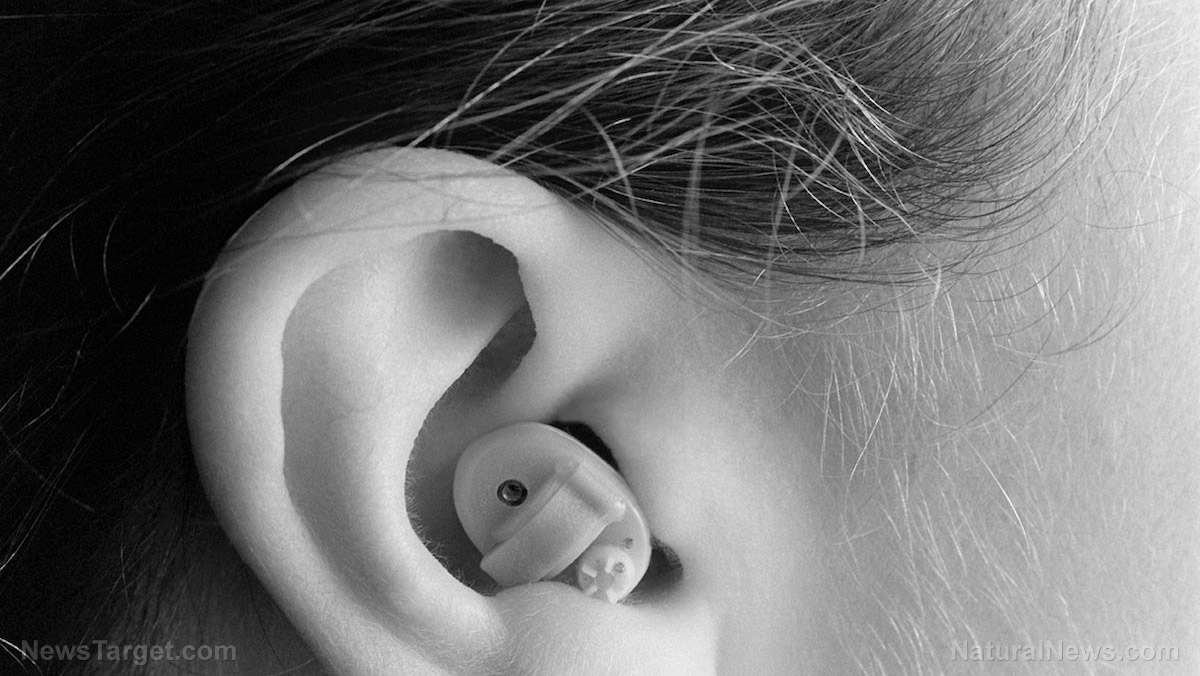Hearing loss can INCREASE dementia risk by 17%: Straining to hear may accelerate brain aging, reveals study
05/27/2020 / By Divina Ramirez

Hearing loss increases the risk of dementia by up to 17 percent, according to a recent study. Published in the Journal of the American Medical Association, the study showed that hearing difficulties in older adults might accelerate the natural aging process of the brain, thus raising the risk of dementia.
Dementia: Types, symptoms and causes
The term dementia pertains to a certain group of neurological disorders that tend to affect older adults. These disorders are chronic or degenerative in nature, meaning their symptoms worsen over time.
Around 50 million people worldwide have dementia, according to recent reports from the World Health Organization. This number grows by about 10 million new cases each year.
People with dementia tend to have impaired cognitive functions including thinking, orientation, calculation and language. Dementia also affects the areas of the brain responsible for sound judgment, emotional response and social behavior. That said, dementia does not affect consciousness.
Although dementia is more common in older adults, it is not a natural part of aging. Rather, dementia accelerates this process, resulting in rapid mental decline.
Here are three of the most common forms of irreversible dementia that affect older adults:
- Alzheimer’s disease – Alzheimer’s disease is the most common form of dementia. It is responsible for about 60-70 percent of all dementia cases worldwide. Neurologists believe that the risk of Alzheimer’s disease is linked to a combination of genetic and environmental factors that affect the brain throughout a person’s life. That said, Alzheimer’s disease is not considered a genetic disorder.
- Vascular dementia – Vascular dementia is the second most common form of dementia accounting for about 15-20 percent of all recorded cases of dementia. This condition occurs due to insufficient blood flow to the brain, resulting in blood clots and significant difficulties in reasoning and judgment. It is often the result of a stroke.
- Lewy body dementia – Lewy body dementia results from the accumulation of proteins in the brain. It is often linked to Parkinson’s disease, due to the similarities in their warning signs like tremors and slow movement.
Despite extensive research on dementia, its exact cause remains unclear. That said, scientists are certain that the risk of dementia can be traced to changes in the brain, whether due to natural aging or other factors like nutrition and traumatic injuries.
The possible link between hearing loss and dementia
A team of researchers from the National Taiwan Normal University found evidence that hearing loss might be a modifiable risk factor for dementia.
To understand the possible link between hearing loss and dementia, the researchers studied the data of 8,135 Taiwanese participants with recently diagnosed hearing loss collected from the National Health Insurance Research Database (NHIRD) of Taiwan. For comparison, the team also studied 8,135 participants without hearing loss.
Of the 16,270 participants, 1,868 developed dementia from January 2000 to December 2013. 1,094 of these participants belonged to the hearing loss group. The researchers noted that dementia incidence rates were higher in the hearing loss group.
They also found that the risk of dementia was higher in participants with underlying conditions including cerebrovascular disease, coronary artery disease, chronic obstructive pulmonary disease, diabetes, depression and rheumatoid arthritis. (Related: Research confirms link between exposure to formaldehyde and risk of dementia, depression and diabetes.)
Based on their findings, the researchers speculated that the act of straining to hear might be triggering mental decline.
A person with hearing difficulties tends to utilize the frontal lobe of the brain more. This area of the brain is responsible for language and communication. Therefore, the constant strain on this area might be causing neurological changes that lead to a heightened risk of dementia.
The researchers concluded that hearing loss is linked to a higher risk of dementia, especially in adults aged 45–64 years.
There are no accepted mainstream cures for dementia or hearing loss. However, early detection of potential hearing loss, as well as the use of hearing aids and hearing protectors, might be able to mitigate this potential risk factor.
Learn more about Alzheimer’s disease and other neurological diseases at Brain.news.
Sources include:
Submit a correction >>
Tagged Under:
aging, Alzheimer's disease, biomedical research, cognitive decline, dementia, future science, hearing loss
This article may contain statements that reflect the opinion of the author
RECENT NEWS & ARTICLES
Dementia.News is a fact-based public education website published by Dementia News Features, LLC.
All content copyright © 2018 by Dementia News Features, LLC.
Contact Us with Tips or Corrections
All trademarks, registered trademarks and servicemarks mentioned on this site are the property of their respective owners.





















